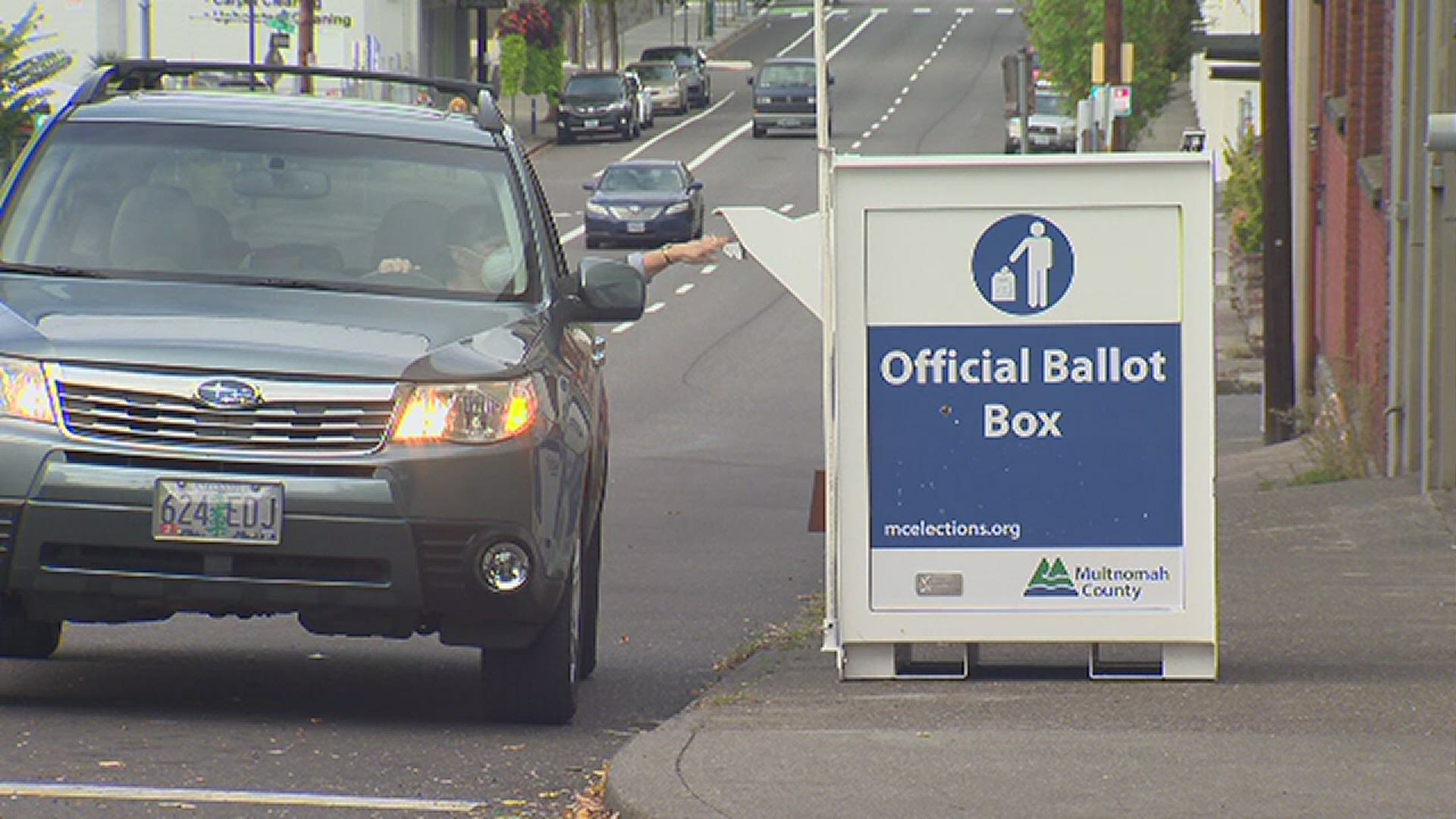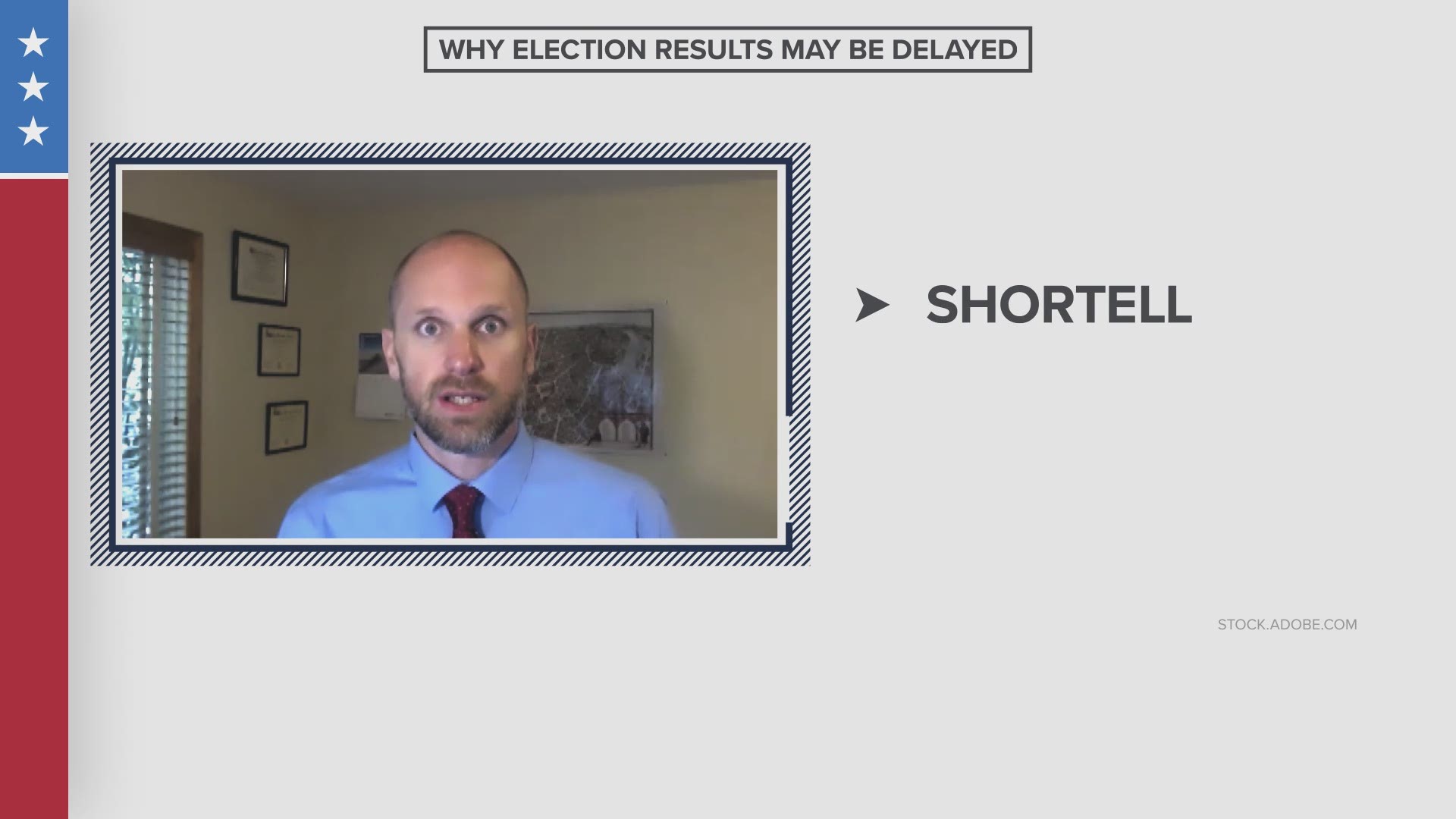PORTLAND, Oregon — With less than a week until Election Day, votes are coming in fast in the Portland metro area. You're in the minority if you haven't turned your ballot in yet.
Thursday evening Multnomah county reported almost 62% of ballots were in. Washington County reported similar numbers, while turnout was at 64% in Clackamas County.
Pundits expect around 90% voter turnout in Oregon, which could makes everything hard to predict, from ballot measures to the Portland mayoral race.
"We're very likely to have the highest aggregate number in Oregon history. We're damn close already," Oregon State University History Associate Professor Christopher McKnight Nichols said.
Oregon State University professors and researchers say there's a Democratic wave from coast to coast, and McKnight Nichols said it's entirely possible Oregon's legislature shifts to give Dems a quorum-proof supermajority.
In Multnomah County about 354,000 ballots were in Thursday afternoon, which is 62% voter turnout, much higher than the 39% turnout at this same time in the 2016 election.
The same story is playing out in Clackamas County, where on Thursday more than 197,000 ballots were in, totaling about 64% turnout. In 2016 at this point, turnout there stood around 41%.
"There's definitely a lot more attention on this election," Clackamas County Election Manager Andrew Jones said.
Elections officials there have been getting so many questions about the process they decided to hold a press conference to answer them.
"We're getting a lot of people calling, very emotional and very concerned their ballot will not be counted as they expect it to," Jones said. "And not realizing we've been doing vote-by-mail here for the last 20 years. And that our system is tried and true. So it's been a lot of voter education."
Clackamas County Clerk Sherry Hall said staff is overwhelmed answering voters' questions on election security, coupled with really high early turnout.
"Because pre-pandemic we could have a lot more temporary workers here," Hall said. "But with the pandemic, space limitations have really reduced the number of people who can sit at tables and open ballots to prepare for tally."
But she said calming voters' fears, answering questions and high early turnout are all great for democracy.
"We've never gotten this many ballots back this early," Hall added. "But we do love the fact we have gotten them back early because it's better for us to do all this before Election Day instead of after."
That said, we shouldn't expect to know the results of all races for sure on Election Night. Dating back to the beginning of America's history, it is normal to wait a long time for final results.
"It's a very new expectation that you would know who the president was the night of or within 24 hours," McKnight Nichols said.
With mail-in voting happening around the nation to protect Americans' health and safety amid the pandemic, McKnight Nichols said it seems very reasonable to wait to tally results "as a common sense measure regardless of politics."
OSU professors and researches said states don't certify votes for days, or weeks, after the election. It's data-driven projections we typically base the outcome off of on Election Night.
"If it does come down to court cases and deciding which ballots will be counted and which ones aren't, I think we'll see a huge information battle," OSU Economics Associate Professor Liz Schroeder said.
"When you have situations like this, projections can help but they can’t necessarily solve it all. We’ve got to do the counts," OSU School of Public Policy Director Katie Bolzendahl added.


